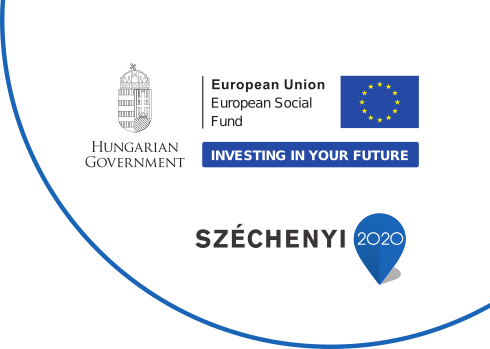From Data Analysis to High-Performance Computing
joint online conference on
Domain-Specific Languages in High-Performance Computing
and
Intelligent Sensor Data Analysis for Smart Systems
Virtual & Physical: 28-29 October 2020, Esztergom, Hungary
Zoom link
Deadline extended to 14th Oct (firm)
Zoom link here
Youtube link for Day 1 here
Youtube link for Day 2 here
This joint conference focuses on two aspects of computing and data processing: domain-specific languages and its application in high-performance computing systems and applications; and sensor data processing in resource-restricted, smart systems. Domain-Specific Languages aim to tackle the performance, portability, productivity challenge by restricting their scope to a narrower problem domain. The scope of the abstraction used, and the programming API is therefore critical in their design. The goal of the conference is to discuss the present and the future of DSLs, scientific codes, and hardware architectures. One of the central topics of the data analysis in smart, embedded systems is to create methods that perform efficiently in low resource environments such as in mobile or IoT devices.
The joint conference has two tracks dedicated to high-performance computing and intelligent data analysis, with joint plenary talks. Our goal is to provide a platform for Ph.D. students and researchers to exchange ideas and approaches and to develop new strategies.
We solicit extended abstracts (2-4 pages, single column) as well as poster abstracts (1-2 pages, single column) for consideration to either conference tracks.
Submission page: https://easychair.org/conferences/?conf=datohpc2020
The EU Social Fund supports this conference THEMATIC FUNDAMENTAL RESEARCH COLLABORATIONS GROUNDING INNOVATION IN INFORMATICS AND INFOCOMMUNICATIONS (3in) (EFOP-3.6.2-16-2017-00013).
Organisers: István Reguly (), Kálmán Tornai ()
Preliminary Program
All times are CET (UTC+1). Please note Europe ends daylight saving time on Oct 25
Oct 28:
10:00-10:05 Opening
10:05-10:30 Dániel Balogh (PPCU ITK) – Automatic parallel implementations of adjoint codes for structured mesh applications
10:30-11:30 Michael Lange (European Centre for Medium-Range Weather Forecasts) – Teaching weather(ed) code new languages: DSLs and source-to-source translation for the IFS
11:30-12:30 Carlos Osuna, Benjamin Weber (MeteoSwiss) – dusk & dawn – A High Level DSL Toolchain for Weather & Climate Models on Icosahedral Triangular Meshes
12:30-12:55 Bence Keömley-Horváth (PPCU ITK) – Thrust library based high performance agent-based model for modeling the spread of COVID19
12:55-14:00 Lunch Break
14:00-15:00 Gihan Mudalige (University of Warwick) – Bridging the Complexity Gap in Exascale Simulation Software Development Through High-level Domain Specific Languages
15:00-16:00 Walter Scheirer (Notre Dame University) – Statistical Methods for Open Set Recognition
16:00-16:30 Coffee Break
16:30-16:55 Archie Powell (University of Warwick) – A SYCL Performance Analysis with an Unstructured-mesh CFD Code using the OP2 DSL
16:55-17:20 Suneth Ekanayake (University of Warwick) – Communication Avoidance in Unstructured-mesh CFD Applications
17:20-17:45 Bálint Siklósi (PPCU ITK) – Bitwise reproducible execution of unstructured mesh applications
Oct 29:
9:00-9:25 András Halász (PPCU ITK) – Distance based method for open set recognition using deep neural networks
9:25-9:50 Zsolt Márkos (PPCU ITK) – Application of LSTM networks in forecast based classification on smart grids
9:50-10:50 Tamás Kozsik (ELTE) – Can my computer help me write HPC code?
10:50-11:00 Coffee Break
11:00-12:00 Fabio Luporini (Devito Codes) – Devito: a DSL and compiler for automated generation of production-grade wave propagators
12:00-13:00 George Bisbas (Imperial College London) – Temporal blocking of finite-difference stencil operators with sparse non-grid-aligned sources and receivers in Devito
13:00-14:00 Lunch Break
14:00-15:00 Sebastian Kuckuk (Friedrich-Alexander Universität Erlangen-Nürnberg) – ExaStencils and GHODDESS: Fully Generated Numerical Solvers and Simulation Codes
15:00-16:00 David Lusher (University of Southampton) – OpenSBLI: automatic code-generation for computational fluid dynamics using the OPS DSL
Important Dates
- Extended abstract (2-4 pages) for contributed talk application submission deadline: extended (firm) 14th October 2020
- Decision on contributed talks: 15th October 2020
- Poster abstract (1-2 pages) submission deadline: extended (firm) 14th October 2020

